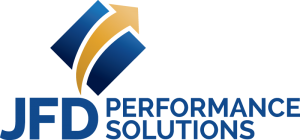Approach
Approach
STRIVING. PERFORMING. ACHIEVING.
Those three words say a lot. When you STRIVE, you work hard and exert yourself, often against the tide of conventional opinion, competition, and your own complacency, doubts and fears. When you PERFORM, you are using your skills and abilities to do something…to execute and to get results. Ultimately, when you ACHIEVE, you are living a purposeful life. You reach a level of performance that is indicative of true success: you’re achieving your goals and dreams!
We understand that success is a journey and a way of living purposefully, not a destination. The foundation of our work with clients is represented by The Formula for Success:
A ( S + K ) + G = PBC → IR (O, P)
Attitudes plus Skills & Knowledge directed by Goals delivers Positive Behavior Change which yields Improved Results, both Organizationally and Personally.
Working the Formula from right to left…
The first thing we look for is how our clients define success. We start out by asking what improved results (IR) our clients want to achieve in their organization or in their personal lives and how that will be tracked and measured. The importance of a thoughtful definition of success is that it provides a target toward which everyone can aim. Everything else we do is specifically geared around achieving those results.
Wouldn’t you agree that if that target is different than where you are today, then you must do something differently to get there? PBC represents positive behavior change. A definition of insanity is doing the things you’ve always done, but expecting different outcomes.
G represents goals. Goals provide focus, otherwise there is no direction. Doesn’t it make sense that if people had goals on which to focus their energy, it would be easier to change their behavior in a way that can be sustained? Goal setting is the tool that generates the activity necessary to turn ideas into strategy, strategy into plans, and plans into reality.
S+K represent the necessary skills (the how to do something) and knowledge (the where and when to do something). Our process focuses on development of behavioral management skills, meaningful communications, influencing or selling skills, problem solving, decision making, organizing time, disciplining, developing subordinates, delegating authority, motivating others, appraising performance, etc. Everyone needs to be very competent in these areas, but especially in the workplace, where more than 50% of any manager’s job involves using these skills.
The A stands for attitude (the drive and want-to). Our approach is a result-oriented philosophy that first involves developing a goal-oriented attitude among people. Attitude is more of a multiplier of skills and knowledge that will directly influence the goals they set and achieve. People will directly determine in many cases whether they turn a problem into an opportunity, or succumb to it; whether they behave in ways that benefit the entire organization or maintain fiefdoms; whether they expand the client base and services provided or allow atrophy to set in; and whether they diligently look for continuous improvement, or remain satisfied with the status quo.

We work with individuals and groups of people in their professional and personal development so that they are better able to achieve their desired results. Our coaching process is very comprehensive, yet flexible so as to emphasize specific areas of opportunity which are identified and agreed upon prior to commencement of the engagement. The coaching would typically focus and build off of four essential elements:
Purpose; Visioning
Why do we do what we do? What are we trying to accomplish? Where do we want to be in 1, 5, 10, 20 years? This gets to the core of what success looks like for individuals and for organizations.
Attitude Development
In order to create an environment of positive attitudes and possibility thinking, it is important to understand where and how attitudes are formed and how those attitudes can be changed, impacting how we behave.
Interpersonal Skills
Much of what we are involved in, and therefore accomplish, involves other people. To be successful, it is important to learn, understand, and use interpersonal skills effectively. These include communicating, influencing, teaming, motivating others, implementing change, mentoring, and listening.
Goal Setting
Leadership is, among other things, about accomplishing your goals, professionally and personally. The goal accomplishment model provides the methods and tools necessary to achieve more goals, more often, in order to maximize results and outcomes.
Coaching is the process of getting people and organizations to use the skills they often already have more effectively.

Why Coaching with JFD?
Our purpose in coaching is, above all else, to help our clients be successful. Our coaching is about development and it’s about results. The coaching processes that we utilize have been used successfully for over 35 years with thousands of organizations and individuals. And our unique mix of professional and personal experiences, skills and interests make us well-suited to coach organizations, teams, and individuals to reach more of their potential.
Contact Us

We are based in wonderful Raleigh, NC.
